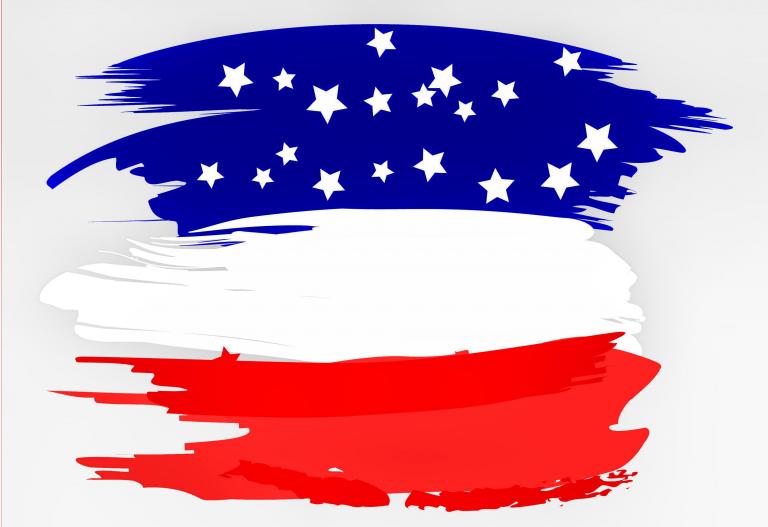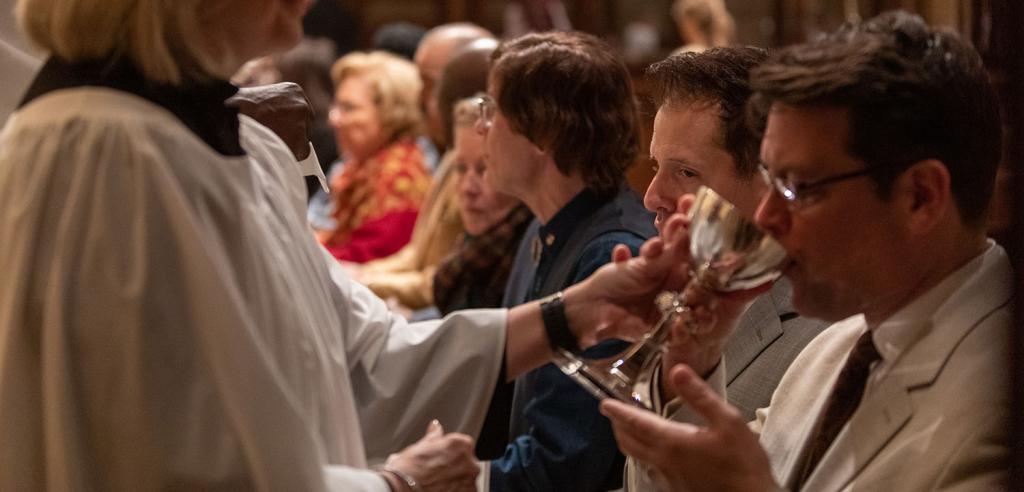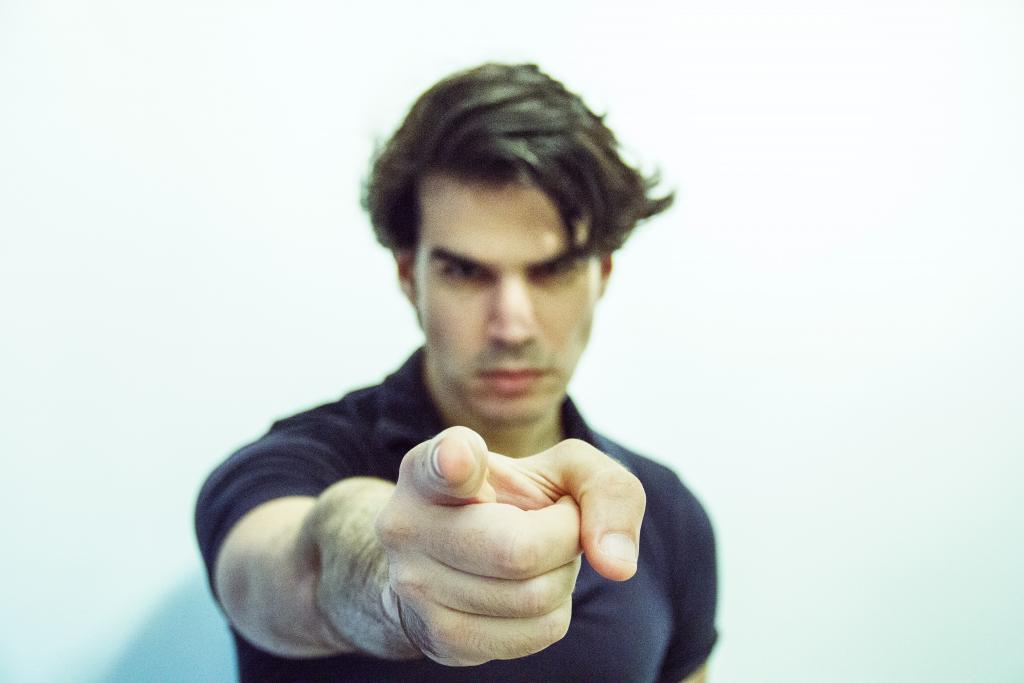 Some years ago, serving as Canon Educator at Washington National Cathedral, I was asked to host visitors from the Middle East. There were five or six of them, all a part of the Meridian Institute, a program sponsored by the United States Information Agency. Their focus was religion in America and, in particular, the relationship between church and state.
Some years ago, serving as Canon Educator at Washington National Cathedral, I was asked to host visitors from the Middle East. There were five or six of them, all a part of the Meridian Institute, a program sponsored by the United States Information Agency. Their focus was religion in America and, in particular, the relationship between church and state.
The conversation was intrinsically confusing for my guests. After all, there I was, an Episcopal priest, dressed in clerics, serving a cathedral that functions as the seat for both the Bishop of Washington and the Presiding Bishop of the Episcopal Church. Its formal name is the Cathedral Church of Saint Peter and Saint Paul. But, at the same time, a bronze sign in front and popular usage refers to it as Washington National Cathedral – which has forced probably every dean who has ever served there to remind visitors that the Cathedral does not receive any financial support from the federal government.
Deep into the conversation, one of my Muslim guests, looked at me and said, “As a Christian and as a man of God, why are you content with a secular government? Why wouldn’t you be happier with a religious government and wouldn’t it be better if Muslims ran it? After all, we are really very good at doing that.” I hadn’t anticipated his question and I paused, wondering how to answer it. But the only Christian, a Syrian, intervened almost immediately, declaring that – in his opinion – Muslims were, in fact, no good at all in running countries and once in power forced their own way of life on everyone else.
I’ve thought off and on about that question over the years. For Christians, it is fundamentally important and non-negotiable that we distinguish between the church and state. Our identity as Christians is – more important than any other commitment and our membership in the body of Christ is more important than our nationality. That commitment is not one affiliation among many. It is singular, decisive and exclusive. The church is also essential to that identity because it is the church in which the reign of God is made real. It is there, as members of the body of Christ, that we experience the healing of our relationship with God and with one another.
No nation can play that role. No Christian should behave as if the two are the same or interchangeable.
Christians have not always registered that fact. Over the centuries we have been confused or have chosen to confuse the claim of Christ with the claims that our country and our politics make on our time and devotion. We still do. My own denomination has flirted on and off with that confusion, and the Anglican tradition is rooted in a national church that has alternately been the Tory or the Labour party at prayer. Some – to be fair, not all – Evangelicals in this country have been confused about the difference between the claims of their faith and their politics. But make no mistake about it, Progressive Christians are equally confused about the difference between the two. More times than I care to count, Progressives have made the anachronistic and fatuous argument that Jesus was a socialist and that, ergo, socialist policies as a matter of modern political imperative, bear a dominical imprimatur.
Does this mean, then, that Christians cannot be patriots or that we should not care about how political decisions are made, particularly in a country where we are invited to do so? Unless one embraces the radical anabaptist position lived out most faithfully by the Amish, no. But it does mean that our reasons for celebrating the birth of our nation, like our reasons for voting in the way that we do will and should differ from those around us who don’t share our faith.
Christians will account for the difference in a variety of ways. But reflecting back on that conversation years ago, my own reasons lie more in what American life makes possible, not in what it dictates. I am not interested in living in a theocracy. I am not interested in governments that invade the lives, minds and speech of its citizens. That does not mean that I don’t believe that what we think, say and do does not matter. The Christian faith suggests that they matter more than anything else. But the Christian faith also holds that no one can be forced to believe those things. One must choose.
So, the basic principles of our national life loom large in my reasons for celebrating American independence: equality under the law, freedom of speech and freedom of religious expression. Christians in many parts of the world do not enjoy that creative space. They live with coercion. But for this small slice of history in one small part of the world, that is not the case and I am grateful. It presents opportunities for Christians, opportunities that extend to caring for people around the world, and it is our obligation to build on that gift.
Is that national, creative space perfect? Of course not. And only in a church where there has been far too little conversation about sin, confession, absolution and amendment of life, would Christians think otherwise. The church, never mind our nation, depends upon the conversion of hearts. So, any church or nation that believes that it is possible to force people to conform to a particular way of thinking courts a dangerous, untenable and finally repressive logic.
On the other hand, basic principles and structure can foster health in our nation by appealing to objective truths that claim our allegiance – and there, the best of American principles owe their prominence to Christian convictions. Freedom and equality under the law are necessarily emptied of their religious grounding, given our national history, but there is a sliver of common conviction that we should work to preserve.
As C. Bradley Thompson notes, that is why, when William Lloyd Garrison argued that the Constitution was “a pro-slavery document,” Frederick Douglass broke with him, writing:
It would be the wildest of absurdities, and lead to endless confusion and mischiefs, if, instead of looking to the written paper itself, for its meaning, it were attempted to make us search it out, in the secret motives, and dishonest intentions, of some of the men who took part in writing it.” He asked: “Shall we condemn the righteous law because wicked men twist it to the support of wickedness?
So, for my own part, I celebrate the birth of our nation without reservation for that very reason. Without the objective set of principles on which our country was founded, few arguments can be made for a shared vision and any argument can be made for others. As Thompson notes, in the late nineteenth century, it was the defenders of slavery that rejected the premises on which our country was founded, and – looking to Hegelian principles – suggested that the human race had moved on to discover the virtues of slavery. It is not clear what the modern purveyors of mob violence have in mind, but since – by definition – they are unreflective, illiberal and undemocratic in their conduct, one cannot be hopeful.
244 years later, Frederick Douglass points the way and it leads back to the principles that have helped us foster well being and correct our mistakes.












